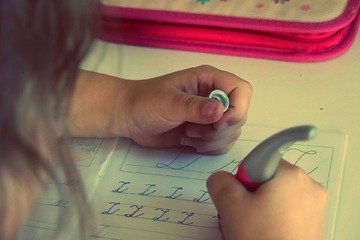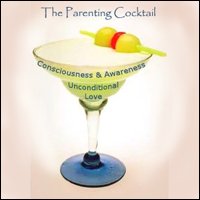What Impact Do Increasing Levels of Parental Involvement Have on Kids?
 Guest
Post by Marina Biljak
Guest
Post by Marina Biljak
Parental involvement refers to the amount of support and encouragement a parent has towards their children.
Being involved in a child’s life, their academics, activities, and relationship is very important but keep in mind that the line between being a supportive parent and a controlling parent is very thin and can often get blurred.
Involvement from a parent can be shown in different ways, such as helping your child with homework, helping them train, coaching their sports team or getting to know about their favorite teacher and friends. The support of parents can make a very big difference in your child’s academic and personal life.
Did you know that there are actually 6 main types of parental involvement based on the work of Dr. Joyce Epstein? Having the knowledge on each of these types could surely help you to achieve better parenting.
6 Types of Parental Involvement
#1: Parental Support
Organizations, most commonly school, can both help families and caregivers understand the development and growth of their children.
Parents help by providing the school or any organization information about the backgrounds, goals, and culture of their young ones.
#2: Communication
Communication between families and educators is important as it encourages families to provide their ideas, reactions, and preferences about the progress of their child.
#3: Learning at Home
Homework is essentially the responsibility of the child. However, parental involvement through homeschooling your young one could also improve their learning capacity.
#4: Volunteering
Parental involvement through activities related to the school but not necessarily happening inside the class room, may also have a positive impact. It may enable families to share their talents and time to support their children as well as the educators.
#5: Decision Making
In order to have a say in the overall direction of school programs etc., parents' voices should integrated in decision making processes. This could be realized through the participating in parent organizations like school councils, PTA/PTO, committees, and so on.
#6: Collaboration with Communities
The environment or community surrounding children often has a significant impact on their education, well-being, and development. Communities may support and encourage the of cooperation between families, school, and community groups.
What Are The Advantages Of Being Involved?
Positive Impact on the Child
- The encouragement a child gets from home can be linked
to improved behavior, positive attitude and great attendance.
Data from the NICHD Study of Early Childcare and Youth Development showed that children with highly involved parents had enhanced social functioning and fewer behavior problems. - Taking part in your child’s education, lets them know that
you care about their education and through your involvement your child will
intuitively understand the importance of literacy.
- When your child notices your concern in his / her education,
it also increases their chance of success.
- Parental concern creates a network of support for your
children in terms of their interaction in the community. This
foundation is very important when kids come across academic
hurdles and challenges in life.
- Being with your child in the highs and lows has a great
impact on their self-esteem, discipline, and confidence,
motivating them to achieve good grades and perfecting their
aesthetic sense and background.
- Parental support proves that your child’s health, and his
activities are top priority to you and he feels respected and
valued.
- Your child is less likely to drop out of school, if you remain involved with his education.
Positive Impact on the Parents
- Being involved in your child’s life helps you figure out
potential signs of mental disorder earlier such as depression,
eating disorder, anxiety, etc., and you can get them help as soon
as possible.
- Parents become more sensitive and responsive to children’s
emotional, social and mental development.
- It makes parents feel more confident in decision making and
in trusting their child.
- Parents are more likely to use affection, positive tactics,
and interaction when dealing with their children.
- Children are more prone to confiding in the parents giving them an insight
into their lives and problems; which again helps parents gain
more insight into
their child’s surroundings and behavior.
- No secrets between you and your child.
So yes, parental involvement is very important for children, but
parents still have to know when it is enough. Overprotecting parents
that micromanage everything about their child can be as detrimental
as parents who are absent altogether.
How To Be Caring And Not Controlling
 Keep in mind that parents should be a part of their child’s life as a mentor and a friend and not be too controlling
as controlling parenting may have unfortunate consequences.
Keep in mind that parents should be a part of their child’s life as a mentor and a friend and not be too controlling
as controlling parenting may have unfortunate consequences.
Maybe you think you are doing them a favor by making life easier for them, but bear it in mind that kids who are not making mistakes can never learn how to fix them.
According to Indiana University psychologist Chris Meno, when kids of controlling parents grow up, they risk having to face challenges adjusting to the 'real' world, which in unfortunate events, may lead to depression and/or anxiety.
Parents can easily cross the line between caring and controlling if they start invading their children's privacy, looking through their phone, laptops, browser history, pictures, etc., to see who are they hanging out with and what do they do when they are not around them.
It is a parental nature to be curious and wanting know what your child is doing but prying on their things is not a good tactic!
So being supportive, listening to what he or she has to say, letting your child know that you have the best interest at heart and that you are concerned for their well-being is once of the best ways of being present in your child's life.
 You
may help them with their homework, but only when they ask you to do. Give them some freedom, give them some space.
This also helps your kids take responsibility.
You
may help them with their homework, but only when they ask you to do. Give them some freedom, give them some space.
This also helps your kids take responsibility.
This may not only strengthen the friendship between you and your child, but it may also make them more open towards you and want to confide in you - a scenario desirable for all parents.
 About Marina Biljak,
Guest Author of This Article
About Marina Biljak,
Guest Author of This Article
Marina is a parenting blogger from Croatia.
Marina is the face behind the website Parental Journey, a simple mom blog that deals with all the ups and downs of parenthood.
Marina graduated with a degree in Journalism, but she decided to
start her own business. She is now a proud work-at-home mom.

Want to stay in touch and get the latest news?
Sign up
for my free newsletter
Parent Coaching
- For Inner Peace, Clarity and a Deeper Connection to Your Child
 Being a parent can feel like a double-edged sword. Life with kids may feel like the greatest gift you have ever received, while at the same being hugely challenging, often leaving you confused, stressed and overwhelmed.
Being a parent can feel like a double-edged sword. Life with kids may feel like the greatest gift you have ever received, while at the same being hugely challenging, often leaving you confused, stressed and overwhelmed.
When we feel like this, we've lost touch with ourselves. We can't hear our own inner voice, and it's difficult to know what is 'right' for us and how to act.
I offer in-depth parent coaching to help you regain your balance and get back in touch with yourself. From a place of inner peace and clarity, your will find your own answers which will help you reconnect with your child from a place of unconditional love and acceptance.
Read more about my parent coaching here.
Where Would You Like to Go Next?
 Good Parenting Skills For the Conscious, Open-minded Parent! |
 What Makes a Good Parent? A Strong Cocktail of Consciousness and Love: Knowing What You Want for Your Kids and Being Those Qualities Yourself! |
 Effective Parenting Skills Nothing Kills a Tantrum Better than Unconditional Love! |
 Healthy Parenting Insights: Reduce Potential Child Health Problems with a Physiologically Healthy Lifestyle. |
 Perfect Parenting: My Less-than-Perfect Parenting Oops'es! |
 Learn to Use Parental Intelligence in 5 Simple Steps: Expert guest post by Laurie Hollman Ph.D. - solving bad behavior in children with a conscious self-reflective mindset. |
Back to the top of this page about What Impact Do Increasing Levels of Parental Involvement Have on Kids?
Go to the Positive Parenting Ally Homepage







